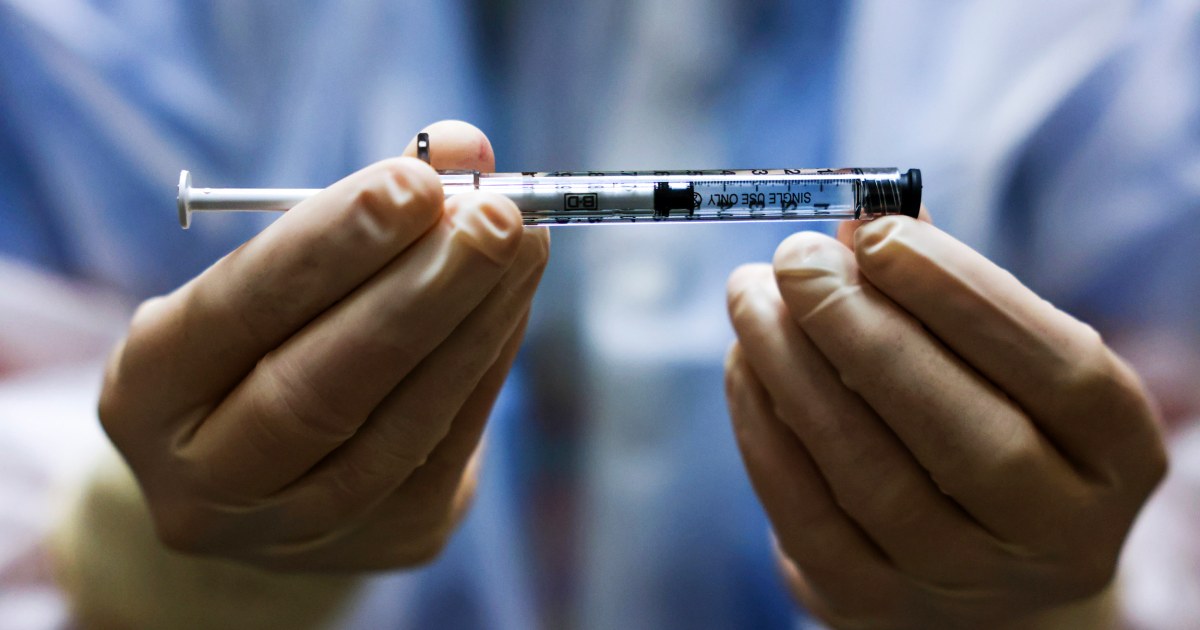
Although now it seems like it happened eons ago, in reality, it has been only nine months since my wife and I received our Johnson & Johnson “one-and-done” Janssen vaccinations. (In November, we both received a Moderna mRNA booster shot.)
After last week’s announcement that the Centers for Disease Control and Prevention’s Advisory Committee on Immunization Practices was formally recommending that adults take the Pfizer and Moderna vaccines over Johnson & Johnson’s shot, I have gone from initially feeling relieved that my wife and I were able to get vaccinated so early to focusing on the fact that we lucked out by not developing potentially life-threatening blood clots.
Although the solace we felt after our single-shot doses back in March was instantaneous, it was fleeting.
In the early spring, access to vaccines – including the two Food and Drug Administration-approved mRNA vaccines manufactured by Pfizer-BioNTech and Moderna – was still scarce. Because of the limited supply of shots, health officials were prioritizing vaccinating older people and first responders. My wife and I felt fortunate to be able to get access, and I wrote about the sense of relief we both felt after having weathered a 2020 hallmarked by fear of the unknown amid lockdowns, social distancing and mask-wearing.
Although the solace we felt after our single-shot doses back in March was instantaneous, it was fleeting.
Sadly, the recent news of the CDC’s recommendation didn’t come as a shock. It’s the latest in a disappointing string of reports about the Johnson & Johnson vaccine, and it certainly served as sort of a predictable bookend to a year marked by increasing unease about having decided to seek out the Johnson & Johnson vaccine in the first place.
Shortly after my wife and I received our single-dose shots, in April, evidence began to emerge that suggested that the vaccine might have serious or even deadly side effects. These concerns prompted the CDC and other federal health agencies to effectively press the pause button by calling for a suspension of the vaccine’s use as they investigated early reports of blood clots, particularly among women. Then, as if to say “nothing to see here,” after a 10-day hold, the FDA and the CDC issued a statement saying that the pause of the Johnson & Johnson vaccine in the U.S. should be lifted and that the use of the vaccine could resume.
Fast-forward to early June, when the public got wind that about 60 million doses of the Johnson & Johnson vaccine manufactured at a factory in Baltimore might have been contaminated and had to be thrown out and that, altogether, as many as 170 million doses may have been “in limbo,” as The New York Times described it.
In a pandemic in which every newly vaccinated human marks a step forward, the missteps with the Johnson & Johnson rollout may prove quite costly.
The Baltimore imbroglio made a lot of people, me included, wonder whether maybe there had been other “bad batches” that had somehow made their way into general circulation. At the time, the Biden administration had been very vocal about its ability to get a significant swath of the U.S. population vaccinated. The vaccination campaign had become a cornerstone of the president’s fight to get the country back on its feet. But that meant President Joe Biden had created a self-imposed benchmark for the effectiveness of his first year in office — the goal of 100 million vaccinations in 100 days quickly became 200 million vaccinations within that time.
I understand that science evolves, but as someone who is neither a physician nor a scientist, I found all these plot twists regarding the Johnson & Johnson vaccine over the past nine months not the least bit comforting.
Federal health officials had been preaching for months about the need to get vaccinated at all costs — our lives may very well depend upon it, they said. But here’s the thing about vaccines or anything else you inject yourself with – there is no do-over. What’s done is done. No mulligans.
With still nearly 40 percent of the U.S. population not fully vaccinated, all these twists and turns in terms of what vaccine is “in” and which one is “out” will certainly not play out in favor of health officials hoping to get more people vaccinated, much less to get them to get booster shots. And most of us know how crucial increasing the vaccination rate is, particularly as the fast-moving omicron variant burns through the country.
Stepping back a bit, I try to put myself in the shoes of someone who is skeptical of the Covid-19 vaccines. And I am not talking about the anti-vaxxers who spread disinformation and insist on doing every single thing possible not to keep themselves or others safe. I am talking about those who are hesitant because the vaccines seemed to be developed and brought to market so quickly, although health officials have explained that the technology for the vaccines has been around for decades.
The CDC’s about-face on the Johnson & Johnson vaccine will most assuredly leave many of these skeptics even more skeptical about the safety of these new vaccines, validating their concerns that these quickly developed doses cannot be fully trusted.
Obviously, health regulators have a sworn obligation to update recommendations as more scientific data become available and a moral obligation to be transparent with the public they serve.
And yes, limiting the deployment of the vaccine will most likely save several lives from complications regarding blood clots, but this all feels like the health care equivalent of a pyrrhic victory for the U.S.
Undoubtedly, scientists, health officials and the Biden administration are going to have to contend with how effectively deep-sixing the Johnson & Johnson single-dose vaccine may end up keeping a significant part of the U.S. population unvaccinated and on the sidelines in the global effort to defeat Covid-19.
And in a pandemic in which every newly vaccinated human marks a step forward, the missteps with the Johnson & Johnson rollout may prove quite costly.
Source: | This article originally belongs to Nbcnews.com










